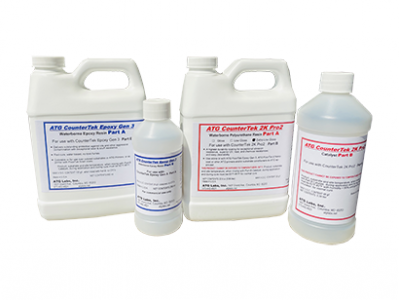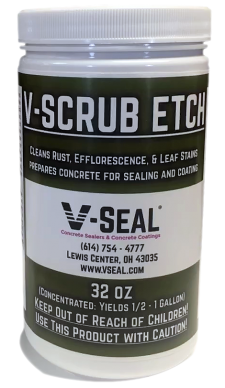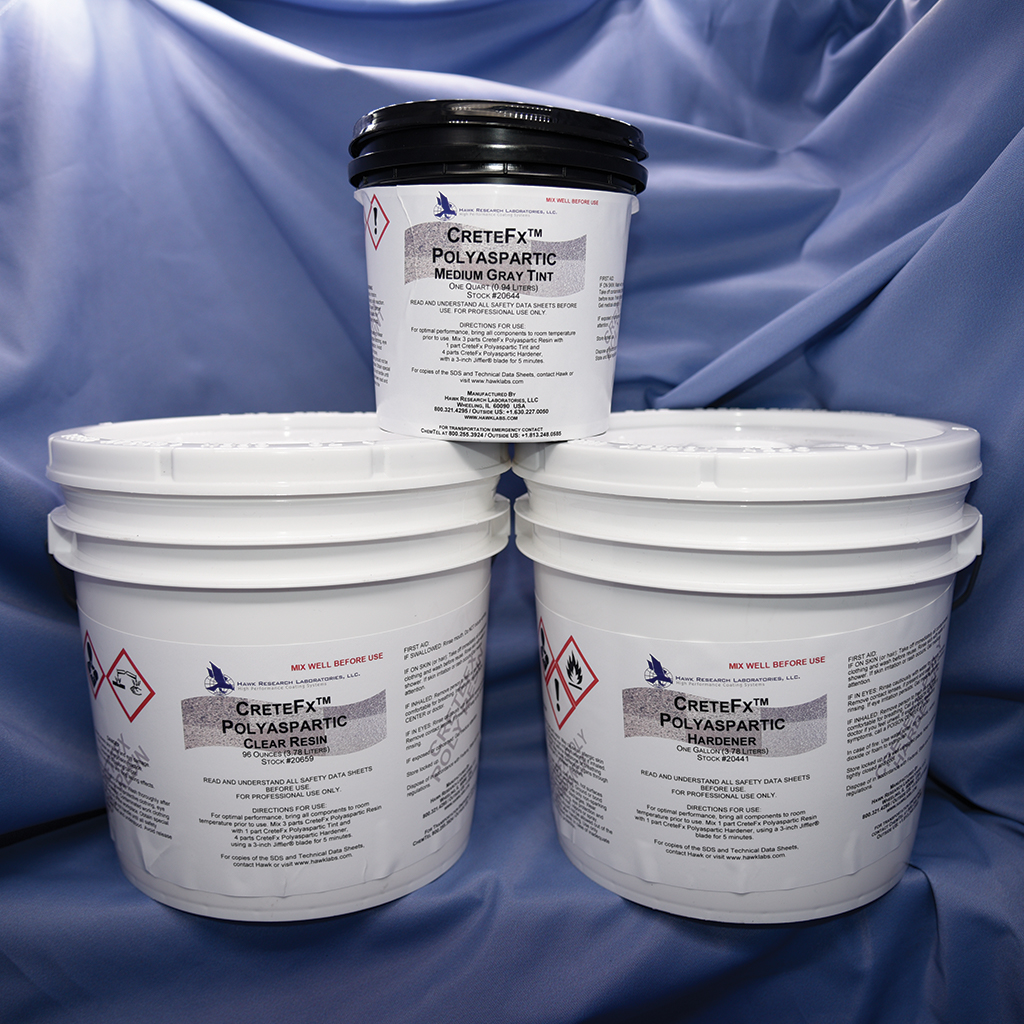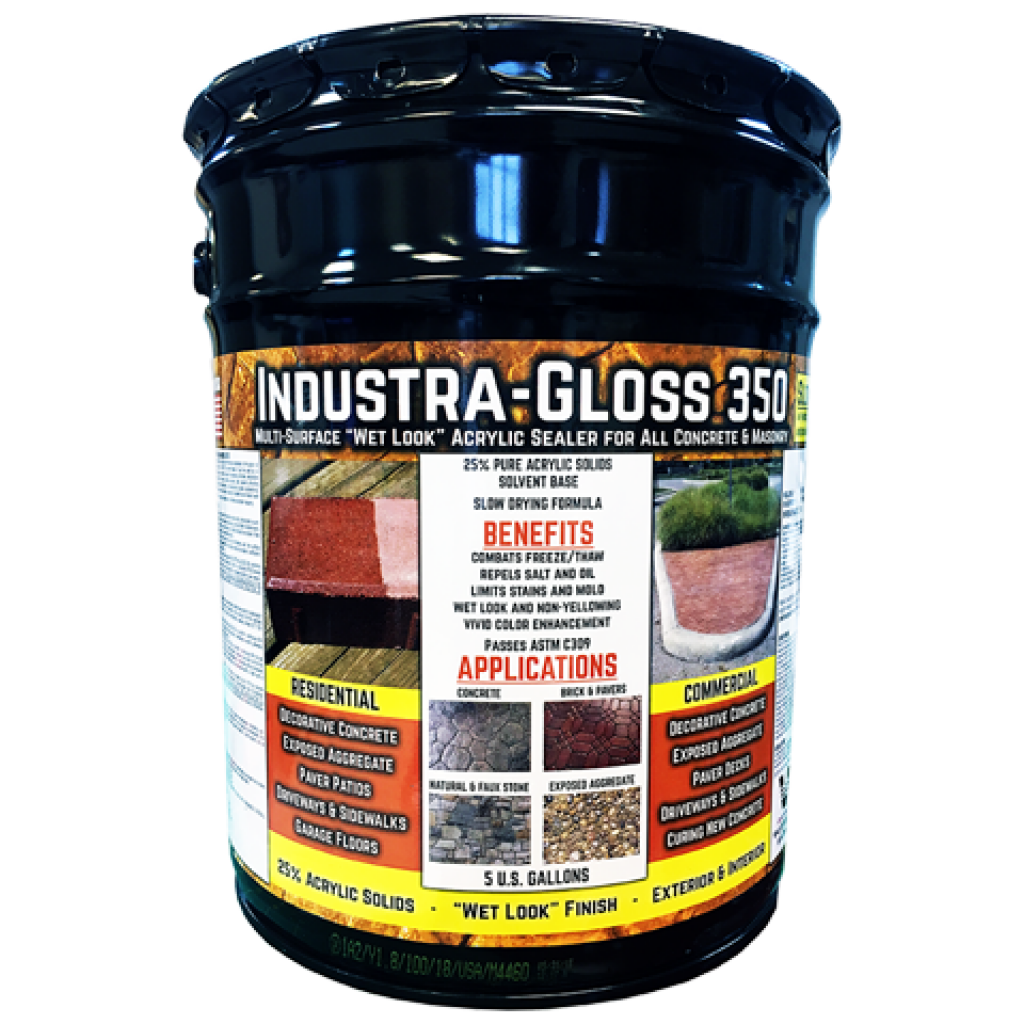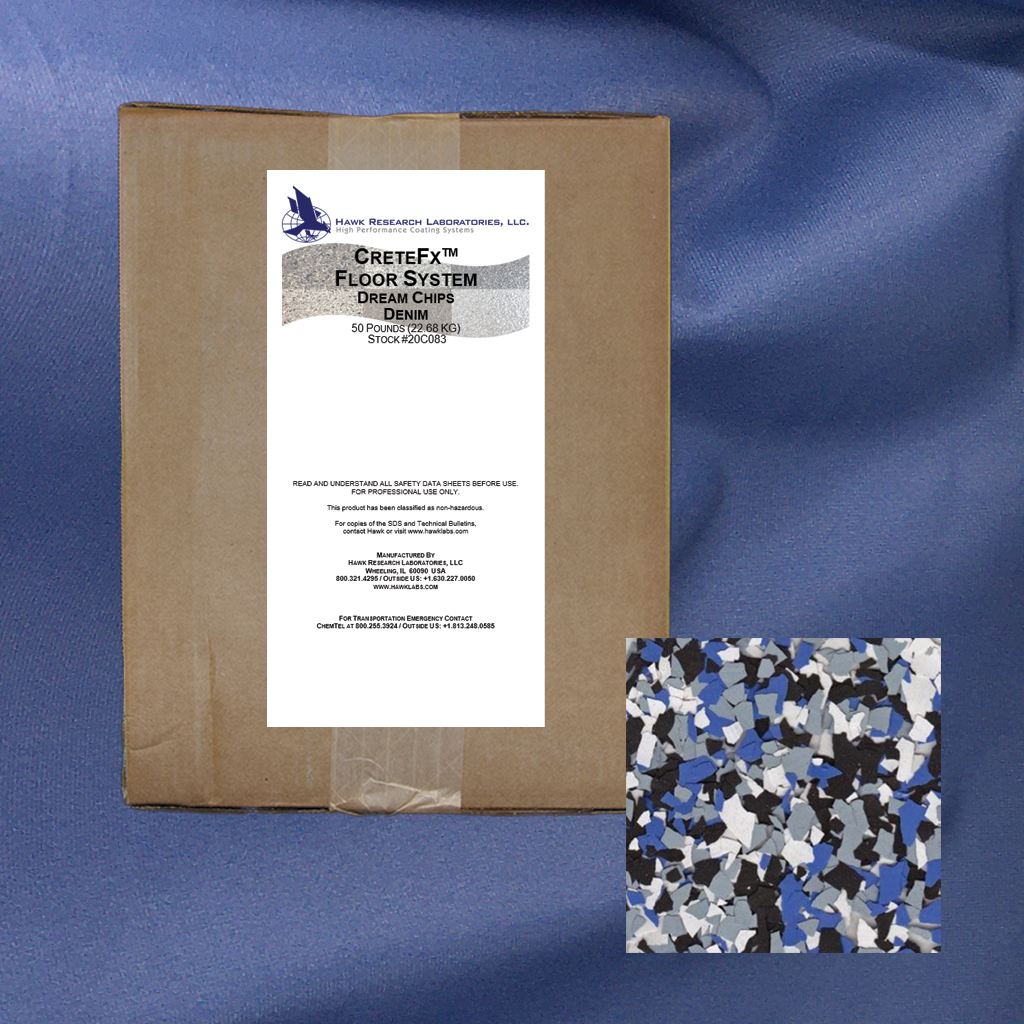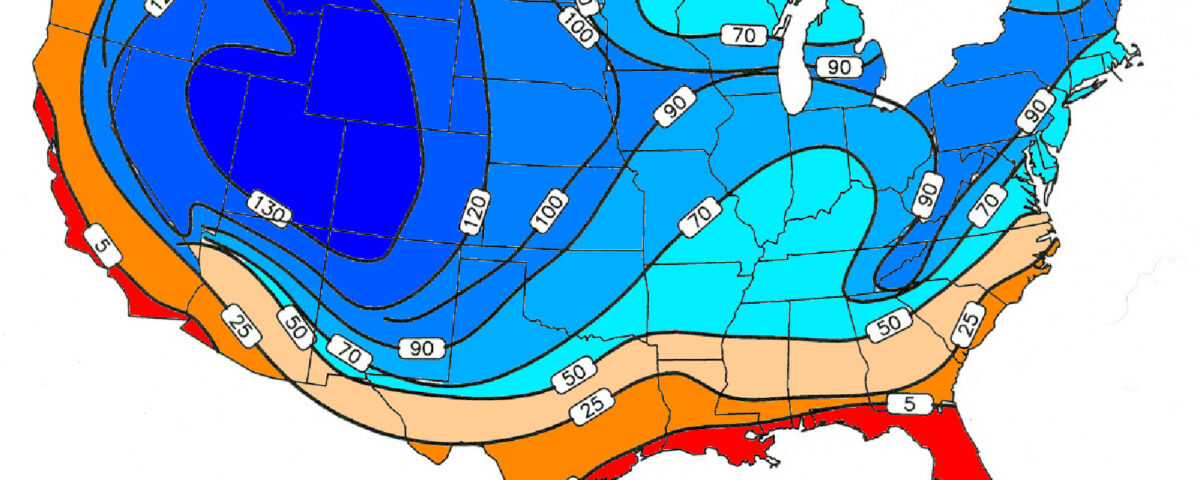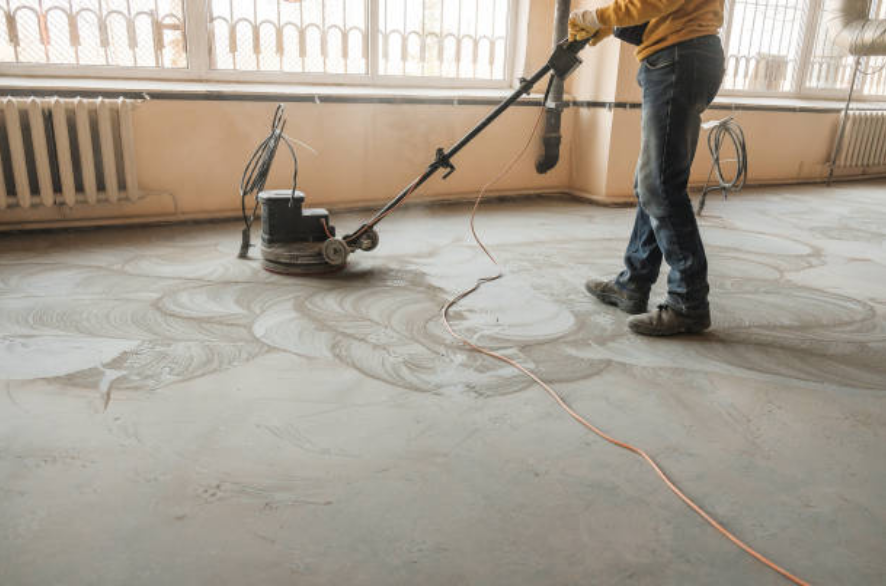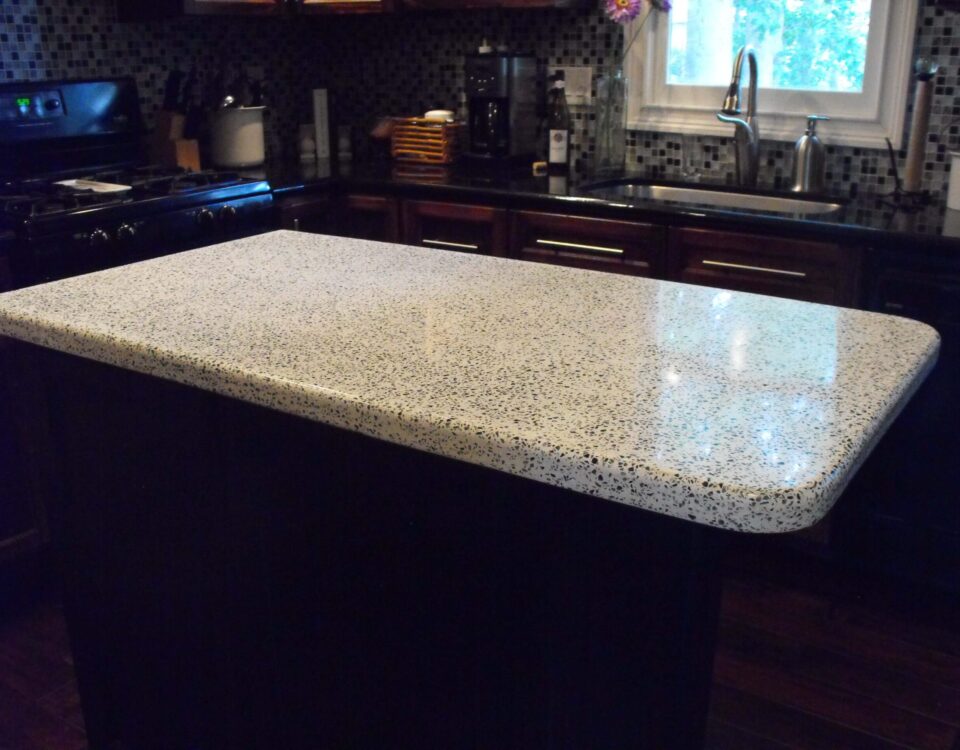
Get your Backyard Ready for Summer with the Best Outdoor Sealer!
June 20, 2017
V-SEAL is the Top Choice Worldwide for Concrete Sealers & Coatings
July 13, 2017If you’re a homeowner – you’ve heard it before: “you need to seal your concrete!” While this is true, many homeowners are left confused by various product claims and scientific jargon. At V-SEAL, we’re here to help explain things to you in plain language, directly from industry professionals.
Here are the top 10 most commonly asked sealer questions and our expert answers:
- What surfaces should I seal?
In regions subject to freeze/thaw cycles, all exterior concrete should be sealed. You might be surprised to learn that major freeze/thaw regions include all of New Mexico, most of Texas, Alabama, Georgia, and South Carolina, and even portions of California, Louisiana, and Florida. In other regions, concrete should be sealed for specific purposes such as stain repellence, dust reduction, abrasion resistance, chemical resistance, or to maintain an attractive appearance.
- What happens if I don’t seal my concrete?
Concrete is a porous material that readily absorbs liquids. In freeze/thaw climates – the expansion of frozen liquids can destroy the concrete surface of unsealed concrete. Oil, salt, fertilizer, and other household chemicals can also discolor and damage unsealed concrete.
- How much does sealer cost?
Acrylic resin sealers and chemically reactive penetrating sealers generally cost between $0.15 – $0.25 per square foot. High performance topical coatings such as epoxies and urethanes range from $0.50 – $2.50 per square foot. Comparatively, the cost to replace concrete is generally between $7.00 – $8.00 per square foot!
- How will my sealed surface look?
Most chemically reactive sealers are nearly invisible. Solvent based acrylic resin sealers and epoxies provide significant color enhancement and wet-look to gloss appearance, and water based acrylic resin sealers provide a moderate color enhancement and satin appearance. Urethanes, which are generally applied as a topcoat over epoxies, are available in a wide range of finishes, from matte to gloss. Many sealers can be colored with translucent or opaque tint in a wide range of colors.
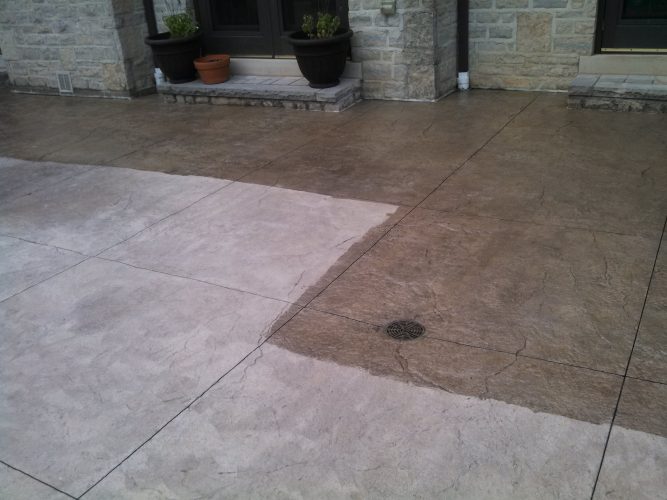
- How is sealer applied and can I apply it myself?
Acrylic resin sealers and reactive penetrating sealers are applied “DIY” with simple tools like paint rollers or pump-up sprayers. 50% solids epoxies and 50% solids urethanes are also applied with the same tools. 100% solids epoxies, polyaspartic urethane, and polyureas require special tools and application techniques, generally done by professionals.
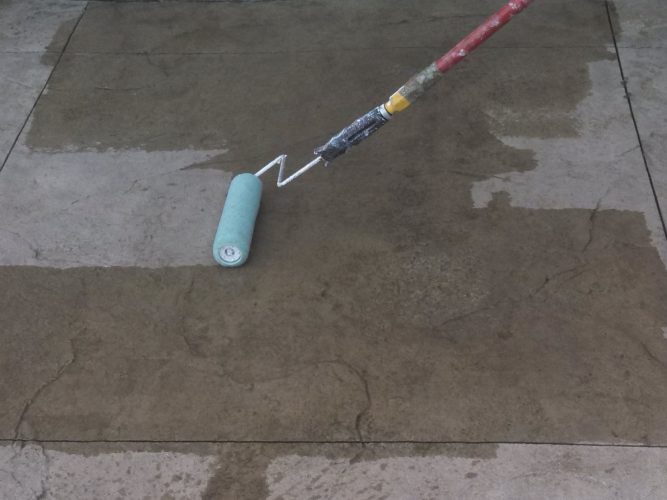
- When do I apply sealer?
Most acrylic resin sealers and certain reactive penetrating sealers (siliconate and silicates) can and should be applied as soon as new concrete can withstand the weight of a worker without marring. Other reactive penetrating sealers (silane and siloxane) and most high-performance coatings, such as epoxy and urethane, should only be applied after concrete is fully cured (usually 28 days). Almost all sealers are good to apply after concrete is at least 28 days old.
- What will my sealer repel?
Acrylic resin sealers and reactive penetrating sealers are widely regarded for repellence of water (freeze/thaw) and salt. Siliconate (a reactive penetrating sealer chemical) is also highly repellent of oil. Acrylic resin is generally weakened by most petroleum distillates and reactive penetrating sealers are generally weakened by acidic chemicals that chemically etch concrete. High-performance epoxy and urethane systems can provide superior resistance to petroleum distillates, acids, and other chemicals.
- Will sealer make my concrete slippery?
Reactive penetrating sealers generally have little, or no, effect upon the concrete traction. Most topical coatings can affect the surface profile and anti-skid additives are often recommended.
- How long will my sealer last?
Acrylic resin sealers generally offer the shortest performance life – about 1-3 years. Epoxy and urethane systems generally last about 5-10 years, depending on traffic. Finally, reactive penetrating sealers only wear away if the substrate itself wears away, which can be 5-10+ years.
- Is sealer environmentally friendly?
When made correctly and with proper care, concrete can last for many decades. Sealers simply extend the useful life of concrete and therefore are an important component of “green” buildings and qualification for LEED points. V-SEAL sealers comply with all regulations and meet low VOC standards.
Did we answer your sealer questions? If not, click here to view more frequently asked questions and give us a call for expert service and support.


